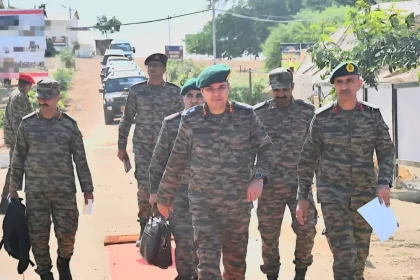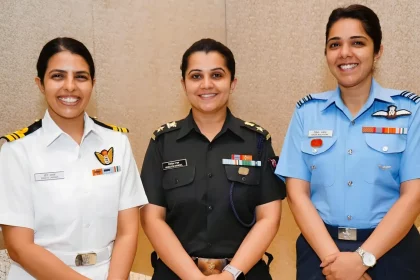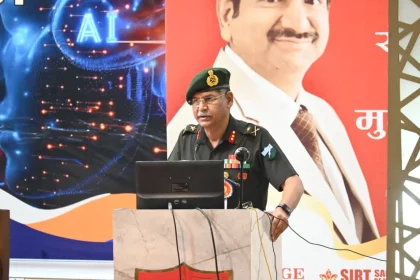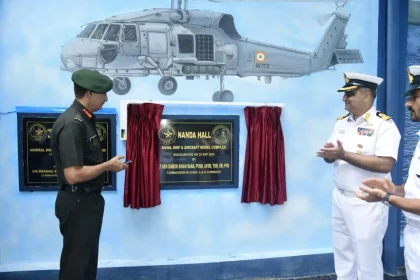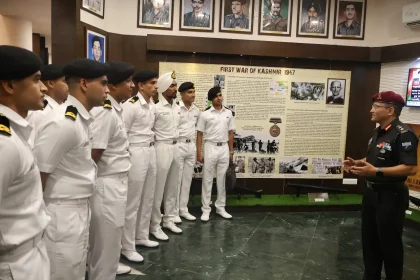Lt Gen AVS Rathee Reviews Operational Preparedness in Rann and Creek Sector
Konark Corps Commander underscor.es synergy and interoperability in securing India’s western frontiers.
Russia Imposes Fuel Export Ban Until Year-End Amid Ukrainian Drone Strikes
Russia Struggles With Fuel Shortages as Ukrainian Strikes Cripple Energy Infrastructure.
Centre Tells Supreme Court: No Discrimination in Grant of Permanent Commission to Women SSC Officers
Government assures SC of gender-neutral policies as women officers allege bias in PC selection.
MCTE Deputy Commandant Delivers Keynote Address at IEEE International Conference on Cutting-Edge Technology 2025
Maj Gen Gautam Mahajan highlights AI, 5G/6G, Quantum Computing and Indigenous Chip Design as key drivers of Defence–Academia–Industry collaboration.
Admiral SM Nanda Honoured as Lt Gen Dinesh Singh Rana Inaugurates ‘Nanda Hall’ Celebrating 1971 Naval Victory
Nanda Hall stands as a living tribute to his strategic brilliance and inspiring leadership, which continue to guide and motivate…
Naval Trainees from INS Valsura Visit Military College of Telecommunication Engineering, Mhow
The visit concluded with both sides reaffirming their commitment to continued cooperation in building a technologically superior and operationally integrated…

